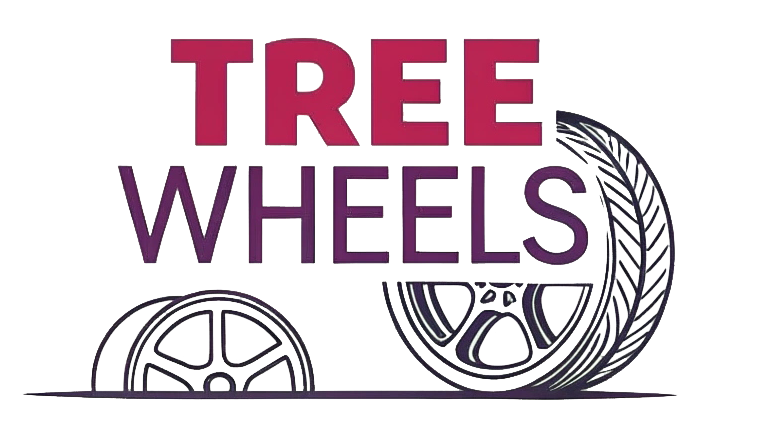When choosing car rims, it’s essential to understand that there isn’t a universally "best" material. Instead, the best choice depends on your specific needs, budget, and how you intend to use your vehicle. Quality often comes with a higher price tag, but the right material for your rims can make a significant difference in performance, durability, and safety.
Choosing the best rim material depends on your driving needs, budget, and desired performance. There are various materials available for car rims, each offering different advantages. Some materials are better for daily driving, while others are designed for high-performance or extreme weather conditions.

The question of what material is best for your car rims really depends on several factors. Are you looking for something lightweight? Do you need strength for off-roading or racing? Maybe you’re just concerned about the cost. Let's break down the options to find the right fit for you.
What is the best material for car rims?
When choosing car rims, one of the most important considerations is the material. Different materials offer unique benefits that suit specific needs. Materials like aluminum, steel, and forged alloys each serve a different purpose, so understanding their strengths and weaknesses can help you make a better decision.
Aluminum rims are the most common choice for car owners due to their balance of weight, strength, and cost. They are lighter than steel and offer good performance for everyday driving. However, for more specialized needs, like heavy-duty vehicles or performance cars, other materials might be more suitable.

Aluminum: This material is lightweight, which helps improve fuel efficiency and handling. It's also relatively affordable and doesn't corrode as easily as steel. However, it is not as strong as some other materials, meaning it may not hold up as well under heavy loads or extreme conditions.
Steel: Known for its strength and durability, steel rims are often used in harsh weather conditions or on trucks that need to carry heavy loads. Steel rims are more affordable than aluminum rims, but they are heavier and can corrode more easily over time.
Forged Alloy: Forged rims are made by shaping a solid block of material under high pressure. This process makes them stronger and more durable than cast aluminum rims. While forged rims are often used in high-performance vehicles and racing cars, they are also significantly more expensive.
Magnesium: Magnesium rims are lighter than aluminum and can improve the vehicle's performance. However, they are rare and expensive, and they can be prone to corrosion under certain conditions. They are mostly used in high-performance applications.
Comparison of Rim Materials
Here's a simple comparison table of the key materials used for car rims, their benefits, and potential downsides:
| Material | Weight | Strength | Durability | Cost | Common Use Case |
|---|---|---|---|---|---|
| Aluminum | Lightweight | Moderate | Good | Moderate | Everyday vehicles, performance cars |
| Steel | Heavy | High | Moderate | Low | Trucks, winter vehicles, budget-friendly |
| Forged Alloy | Light | Very High | Excellent | High | Racing, off-road, high-performance cars |
| Magnesium | Very Light | High | Low (corrosion) | Very High | High-performance, racing |
What type of rims are the strongest?
When strength is your top priority, the best material for rims is forged alloy. The process used to create forged rims makes them much stronger than cast aluminum or steel rims. The high pressure applied during the forging process creates a more uniform and denser structure, making these rims highly resistant to impacts and cracks.
Forged rims are the strongest option available. They provide superior strength while maintaining a relatively low weight. This is why they are commonly used in racing or off-roading vehicles, where the rims experience heavy impacts.

Forged rims also offer better performance in terms of resistance to fatigue. This means they can endure a greater number of cycles under stress without failing. However, they are generally more expensive, which is why they're often chosen by enthusiasts who demand the best performance from their vehicles.
In addition to forged rims, steel rims are also strong, but they are heavier and typically used for vehicles that need to endure harsh environments or heavy loads, such as trucks and construction vehicles.
Are titanium wheels better than aluminum?
Titanium rims are lighter and stronger than aluminum, making them a popular choice for high-performance sports cars and racing applications. While titanium is known for its incredible strength-to-weight ratio, it is also very expensive compared to aluminum. For most everyday drivers, aluminum rims offer sufficient performance without the high price tag of titanium.
Titanium is stronger and lighter than aluminum, but it comes with a much higher cost. If you’re looking for the ultimate in strength and weight reduction, titanium rims might be worth considering, but they are typically overkill for the average car owner.

In general, aluminum rims are a more cost-effective choice for most drivers, offering a good balance of performance and value. Titanium wheels, on the other hand, are suited for those looking for the highest level of performance and willing to pay a premium for it.
What is the most durable finish for rims?
The finish on your car rims plays a crucial role in how well they withstand wear and tear. Some finishes are better for protecting rims from the elements, while others are designed to enhance appearance.
Powder coating is one of the most durable finishes for car rims. This finish is applied as a dry powder and then cured under heat. The result is a tough, protective layer that resists scratches, chips, and fading. Powder coating is available in a wide range of colors and can be customized to fit the style of your vehicle.

Another durable finish is anodizing, which is often used for aluminum rims. This process creates a layer of oxide on the surface, making the rims more resistant to corrosion and wear. However, anodizing does not provide as much protection against scratches as powder coating.
Chrome plating is another finish that offers a high-gloss shine and protects rims from rust. However, chrome finishes can be more prone to chipping and may require more maintenance than powder-coated rims.
Conclusion
The best rim material for your car depends on your specific needs, budget, and driving conditions. While aluminum is a common and reliable choice, materials like forged alloys, titanium, and steel offer distinct advantages in terms of strength, weight, and performance. At TreeWheels, we offer high-end customized forged wheels tailored to your needs, ensuring top-quality performance and durability.



